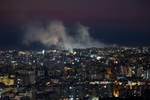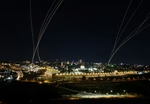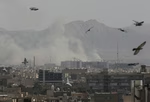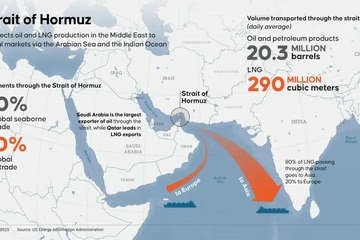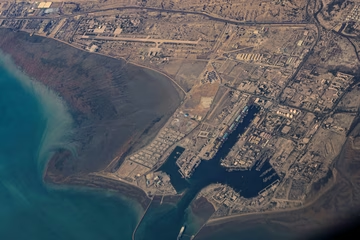Lagumdzija: Three million Serbian children will learn about the genocide in Srebrenica
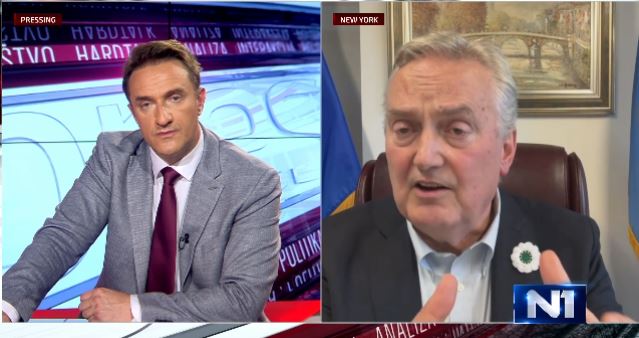
"The educational program is an important part of the Resolution for a reason. Maybe children in Serbia won't learn about the genocide in Srebrenica for a long time, but three million children from Serbia who live in countries that voted for the Resolution will learn about it," said Bosnia and Herzegovina's Ambassador to the United Nations, Zlatko Lagumdzija, on N1's hard-talk show "Pressing."
Were Russia, Serbia, and China prepared to support the Resolution if certain elements were removed?
At my first meeting with a significant official from Serbia, I told him that the content of this Resolution does not fall below what you adopted in the Serbian Assembly in 2010, except you did not mention the crime defined by judgments, which is genocide. He said we did it that way back then because we wanted to prepare the people for the term genocide. I replied, you didn't prepare the people; you are pushing the genocide aside. I asked him: Do you have a problem with us adopting the text of the Resolution on the International Day of Remembrance of the Genocide committed in Srebrenica in 1995? He said there's one word too many. That word was genocide. I then said we are done discussing this. If you want to deny genocide, you're not seeking a compromise; you're preparing the ground for repeating the genocide.
Why are there no judgments against Simatovic and Stanisic, senior officials of Serbia, in the text of the Resolution?
First of all, the preamble mentions all judgments related to the genocide in Srebrenica, nothing beyond that. It includes the 2007 judgment by the International Court of Justice, which determined that genocide occurred and that Serbia was responsible for not preventing it. I couldn't believe what Vucic, Tadic, Dacic... were saying for days, claiming the Resolution mentions collective guilt, which was proven to be untrue. The Resolution names individuals such as Karadzic, Mladic, and Krstic. Why aren't Simatovic and Stanisic mentioned? Their judgments do not relate to the genocide in Srebrenica. Srebrenica, in a way, is like Guernica in Spain; it represents all crimes in Bosnia and Herzegovina.
Do the authorities in Serbia and the RS count the abstaining countries as those who voted against the Resolution?
All abstaining countries stated that genocide occurred in Srebrenica. Islamic countries abstained due to various interests, and some because they wanted a consensus first. If this is a success for Serbia, then the 2014 UN Security Council Resolution on the genocide in Srebrenica, when we had 10 votes for, four abstentions, and one against (the Russian veto), is our victory. According to Vučić's logic, we had 14 countries not against us, so we succeeded? We didn't succeed. People don't understand the UN voting mechanism. Countries can comfortably abstain or not appear to avoid major tensions and block divisions.
Does the voting show a clear division between the West and the East?
There are several conclusions after the vote. Vučić did a disservice by making everyone talk about Srebrenica. If it had been different, it would have gone unnoticed. His behavior, waving the flag... this does not garner respect. This stopped being a vote about Srebrenica. It was an attempt to undermine a system based on the rule of law and the existence of judicial institutions established by the United Nations. This created space for every genocide judgment, like the one possibly occurring in Gaza, to be treated selectively. That did not happen. The 84 countries that voted for the Resolution are part of the world that upholds Western values, while the other part comprises 19 countries against. The abstaining countries did not join those who were against it.
Those who opposed the Resolution threatened instability and conflict if it passed?
The Resolution is a premise for reconciliation. There is no reconciliation without facing the truth and justice. This Resolution opens the door to serious reconciliation. If it were swept under the rug, it would signal new conflicts and encourage those who committed genocide to continue. It would also signal to the victims that they have been betrayed and should prepare to confront those planning another genocide. This would lead to endless instability. The educational program is an important part of the Resolution for a reason. Maybe children in Serbia won't learn about the genocide in Srebrenica for a long time, but three million children from Serbia who live in countries that voted for the Resolution will learn about it. You can't, in 2024, pretend that Prince Lazar won the Battle of Kosovo. The sooner this delusion leaves people's minds, the better.
Kakvo je tvoje mišljenje o ovome?
Učestvuj u diskusiji ili pročitaj komentare





 Srbija
Srbija
 Hrvatska
Hrvatska
 Slovenija
Slovenija








